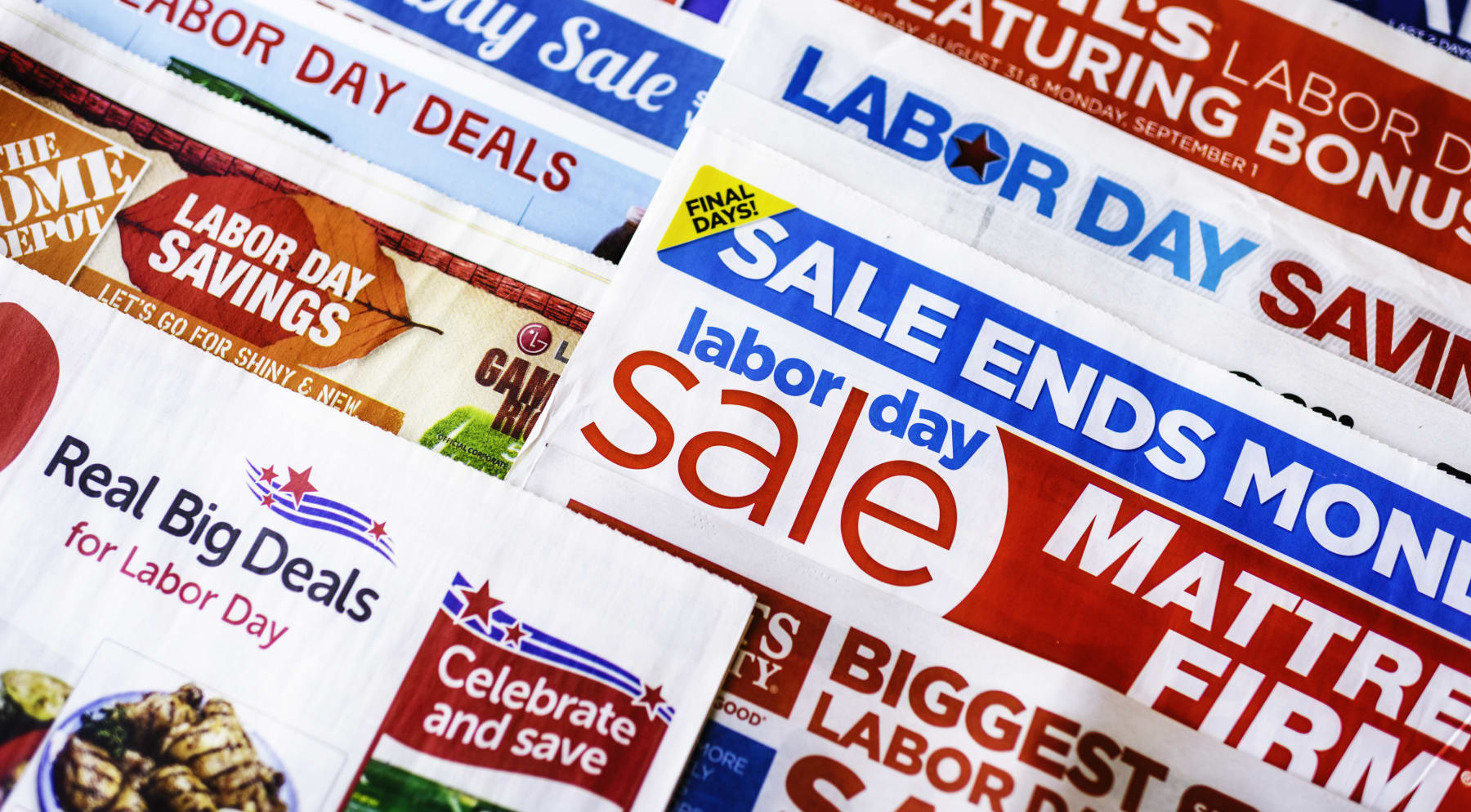2025's Best Upcoming Holiday Shopping Sales Ahead of Christmas
You can save money during almost any holiday, as long as you shop the right sales and products.
Updated

SEE ALSO: The Best Things to Buy Every Month of the Year in 2025
What to Expect From Every Holiday Sale in 2025

Valentine's Day
Date: Wednesday, February 14, 2026You can save money by ordering your Valentine's Day bouquet weeks in advance and scheduling the delivery for later. Going discount shopping for jewelry? We've seen deals at Amazon, as well as at department stores such as Kohl's and Macy's.
Check out our full Valentine's Day guide to learn more.

Presidents' Day
Date: Monday, February 19, 2026Presidents' Day discounts can go as high as 70% off for electronics like laptops and desktops. Shopping for home goods? Watch for discounts between 20% and 70% off on decor and bedding, as well as select pieces of furniture. Expect stores to also take up to 60% off mattresses during Presidents' Day sales. If you're looking for clothing, the best holiday discounts may be as high as 75% off, but most retailers will likely cut prices by 20% to 50%.
Check out our full Presidents' Day guide to learn more.

Easter
Date: Sunday, March 31, 2026Easter sales begin more than a month before the holiday itself, so you have plenty of time to save on candy, kids' Easter outfits, and even items that can make cooking a big Easter meal easier.
So where should you shop for all your discounted Easter products? Check Macy's and Target for candy deals, Macy's for Easter outfits, and Sur La Table and Omaha Steaks for those Easter dinner deals. Some retailers even offer Easter sales that don't focus on holiday-themed items.
Check out our full Easter guide to learn more.

Mother's Day
Date: Sunday, May 12, 2026Shop designer labels for Mom, and you'll save anywhere from 25% to 70%. If she's a beauty queen, watch for stores to take 20% to 80% off skin care and body care products, perfume, and makeup.
Electronics will be on sale for Mother's Day, too, but don't be surprised when refurbished and used goods are part of the festivities. Also keep an eye out for up to 44% off small appliances and other kitchen items, as well as special deals on Amazon's eBook readers.
Check out our full Mother's Day guide to learn more.

Memorial Day
Date: Monday, May 27, 2026Holiday sales will launch early, though expect most of them to fall within the week leading up to Memorial Day itself. Among the discounted items will be patio furniture; expect to get up to 75% off at department stores and sites like eBay. As for grills, the best deals could come later in the year, but historically, we've seen Memorial Day discounts of up to 40% off or more at home improvement stores.
Shopping for a new wardrobe? Look for a variety of retailers to take up to 80% off clothes. Also watch for mattress deals; stores such as Macy's will likely take up to 70% off.
Check out our full Memorial Day guide to learn more.

Father's Day
Date: Sunday, June 16, 2026Many Father's Day tool deals feature introductory tools. So if your dad's just breaking into the DIY world, you can score average savings on drill/driver/impact combos. You can also get up to 70% off apparel, grills, and audio products.
Watch for other electronics to go on sale, as well. Laptops, TVs, and phones should make the cut at stores like eBay.
Check out our full Father's Day guide to learn more.

4th of July
Date: Thursday, July 4, 2026Watch for Independence Day sales to start as early as mid-to-late June. Electronics will be a huge part of these holiday sales, with Best Buy likely leading the way. The retailer could discount TV, laptops, phones, and other tech products. You can also expect to see 4th of July events from stores like B&H Photo Video and HP.
Shopping for outdoor gear? Backcountry and REI could provide holiday discounts of up to 40% off or even more. If you'd rather look for new clothes, know that retailers will probably cut between 20% and 80% off.
Check out our full 4th of July guide to learn more.

Labor Day
Date: Monday, September 2, 2026Expect Labor Day sales to start early, and for some to even run past the holiday itself. Nearly half of these promotions will likely include clothing, so watch for discounts of up to 85% off. Look for grills and outdoor furniture to also go on sale, with prices cut by up to 50%. Watch for potential travel deals, as well.
Check out our full Labor Day guide to learn more.

Halloween
Date: Thursday, October 31, 2026Halloween is all about the treats! And though they taste delicious, they'll taste even better if you get them on sale. You can save on candy by stacking up coupons, buying in bulk, and checking out drugstore discounts.
Looking for something spooky to wear on a budget? Shop the week before Halloween for trendy costumes at discounted prices.
Check out our full Halloween guide to learn more.

Thanksgiving
Date: Thursday, November 28, 2026Thanksgiving may have its own sales, but it's really just an extension of the sale holiday Black Friday, especially since it's when many Black Friday deals begin. Plenty of stores close on Thanksgiving, but you can still shop their deals online!
Check out all our Black Friday predictions and store guides to learn more about what to expect, and even what kind of sales will pop up for Cyber Monday. And if you're interested in travel, check out our Travel Tuesday breakdown for the deals you can expect the day after Cyber Monday.

Christmas
Date: Wednesday, December 25, 2025December is full of sales! Whether you're checking out the best Green Monday deals or looking for stores that deliver by Christmas Eve, you can spend the whole month shopping the sales for holiday gifts. Of course, After Christmas sales are where the real saving happens.
Check out all our Christmas shopping guides:

Senior Editor
Julie's work has been featured on CNBC, GoBankingRates, Kiplinger, Marketwatch, Money, The New York Times, Real Simple, US News, WaPo, WSJ, Yahoo!, and more. She's extolled the virtues of DealNews in interviews with Cheddar TV, GMA, various podcasts, and affiliates across the United States, plus one in Canada.
DealNews may be compensated by companies mentioned in this article.
Please note that, although prices sometimes fluctuate or expire
unexpectedly, all products and deals mentioned in this feature were
available at the lowest total price we could find at the time of
publication (unless otherwise specified).

Sign In or Register